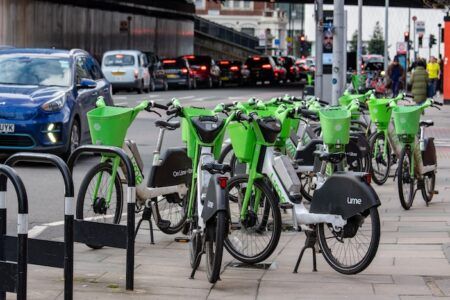The US Department of Transportation (USDOT) will host a free webinar on the Smart Columbus Program’s Event Parking Management (EPM) project next week focusing on the Concept of Operations (ConOps) developed by the City of Columbus authorities.
It is the third in a series of webinars focusing on ConOps and trade studies developed as part of the Smart Columbus program, and is scheduled for September 13, from 2:00-3:00 pm ET. Columbus won the USDOT’s Smart City Challenge competition in 2016, with the Ohio state capital selected to define what it means to be a smart city and serve as a model for other cities wishing to fully integrate innovative technologies – such as connected and automated vehicles (CAV) or advanced mobility applications – into their transportation networks.
Columbus is acting as a living laboratory for intelligent transportation systems (ITS) and disseminating lessons learned and best practices to cities across the USA in an effort known as the Smart Columbus program. The goal of the initiative is to connect people by creating opportunity for residents to better access jobs and services, while improving the overall safety and efficiency of the city’s transportation network. The Smart Columbus program comprises nine individual projects covering three themes: enabling technologies, emerging technologies, and enhanced human services.
One of these projects, the EPM, will focus on providing more parking information to the public, including prepayment for parking in available garages and lots in the downtown and Short North areas. The EPM will also show predictive analytics related to the availability of parking meters citywide.
The application, which will also be available on the web, will allow users to research parking options in advance. Users will be able to identify parking locations and check pricing, hours of operation, and specialty parking availability such as handicap, electric vehicle (EV) charging, and oversized vehicles.
Some parking garages and lots will also offer advance payment, enabling travelers to avoid a last-minute hunt for a parking space. The application will also use historical parking meter data and probe vehicle data to predict the availability of a meter in a certain area.
The webinar will focus on the ConOps, which conveys a high-level view of the system to be implemented from the viewpoint of each stakeholder. It frames the overall system, sets the technical course for the project, and serves as a bridge between early project motivations and the technical requirements.
The ConOps also offers stakeholders, and the larger ITS community, the opportunity to provide input on how the proposed system should function, which will help build consensus and create a single vision for the system moving forward.




